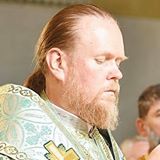Archbishop Yevstratiy (Zoria) critically responded on his Facebook page to a statement of the Synod of the Russian Orthodox Church regarding Constantinople’s decision to send their exarchs to Ukraine within the framework of preparation for granting autocephaly.
The first thing that Archbishop Yevstratiy pointed out is the fact that the Synod of the Russian Orthodox Church itself did not assemble and did not hold any sessions.
The hierarch also criticized the arguments presented in the statement of the Russian Orthodox Church, saying they do not stand any criticism:
1. The references to the canons, which prohibit the hierarchs of one Church to interfere with the affairs of another Church present a charge against the Moscow Patriarchate itself. After all, historically it repeatedly interfered in the affairs of the Kyiv Metropolis, and even appointed a locum tenens – Bishop of Nizhyn, Archpriest Methodius Fylymonovych, who was ordained in Moscow and then seized authority over the Metropolis in a non-canonical manner and abolished it, turning it into a regular diocese of the Russian Church.
The Russian Church acted similarly in a series of other cases, without observing the canons, grabbing power over the Metropolises in the Crimea and Bessarabia, as well as over the Church of Georgia.
In recent times, the Russian Orthodox Church also repeatedly intervened in the affairs of other Local Churches – of Jerusalem, of the Czech lands and Slovakia, of the Greek Church, and other Churches.
The most shameful case of destructive intervention was an attempt to disrupt the Holy and Great Council of the Orthodox Church in Crete in 2016. Then the Russian Orthodox Church not only refused to participate in the Cathedral itself, but also influenced the decision of three other Churches and tried to influence at least one more Church – the Serbian Church.
2. Patriarch Bartholomew did not recognize neither the late Metropolitan Volodymyr nor the current Metropolitan Onufriy as heads of a separate Church – but only as Metropolitans of the Moscow Patriarchate. After all, the Ukrainian Orthodox Church (the Metropolis of the Moscow Patriarchate in Ukraine) does not enjoy the status of either an autocephalous or an autonomous Church.
3. The desire of the UOC to be an autocephalous Church was clearly expressed in the decisions of the Local Council of November 1-3, 1991. These decisions were not canceled by any authorized ecclesiastical entity.
The Statement of Hierarchs cited is a proclamation of an unclear status since at least one of the bishops whose “signatures” were published under the declaration, Metropolitan Sofroniy of Cherkasy, publicly announced that he did not sign the statement, but only the registration sheet at the meeting. Thus, there is every reason to believe that the statement does not reflect the real opinion of the bishops of the Moscow Patriarchate in Ukraine, but only the opinion of its compilers.
4. The special canonical prerogatives of the Patriarchate of Constantinople are enshrined in the canons, historical precedents and tradition. The Russian Orthodox Church itself received autocephaly and the patriarchal status on the basis of these prerogatives according to the decision of the Ecumenical Patriarch. It was also the Ecumenical Patriarch that the Russian Orthodox Church appealed to in complex issues of legal proceedings – as, for example, in the condemnation of the Moscow Patriarch, Nikon Minov. Therefore, the complete rejection of the canonical prerogatives of the First Throne is groundless.
5. The threat to the unity of Orthodoxy for many decades has been the hegemonic aspirations of the Moscow Patriarchate, which seeks to become the “Orthodox Vatican” - the world's center of gravity for all Orthodox Churches. The decisions and actions of the Ecumenical Patriarch are designed precisely to deter this threat and restore true unity of Orthodoxy, which the leadership of the Russian Orthodox Church disrupts.
6. Judging by the tone of threats, the Moscow Patriarchate is now incapable of an adequate response to the problems that arose, thus driving itself in a deadlock of self-isolation and schism.

